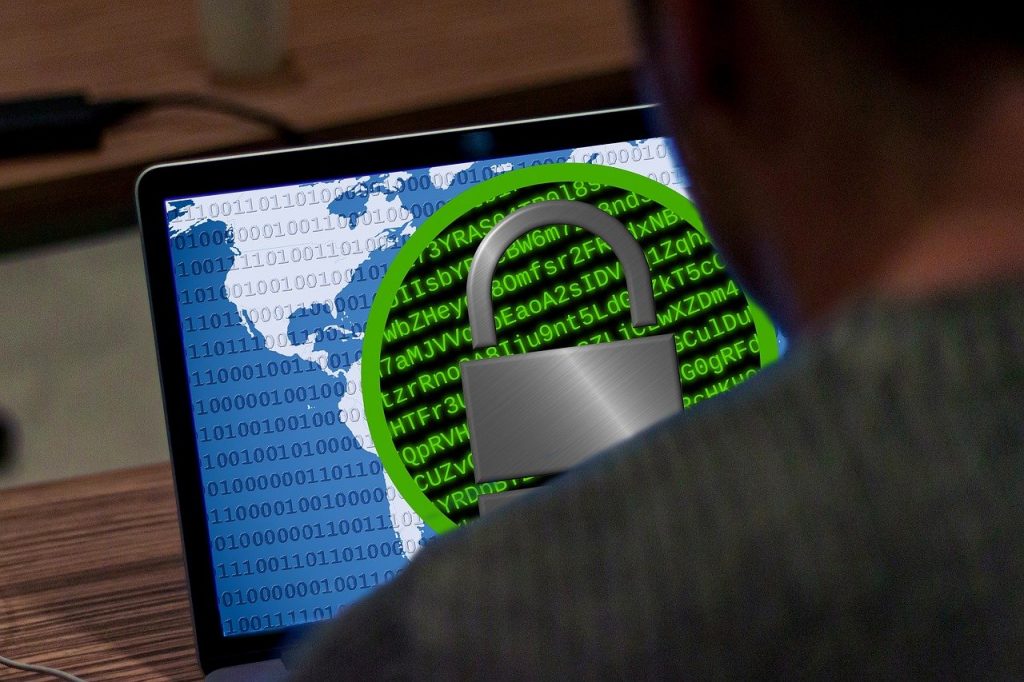
Cybersecurity For Small And Medium-Sized Enterprises: Cost-Effective Solutions
Enterprises: An Introduction
Enterprises are organizations that operate in various industries, including technology, finance, healthcare, and manufacturing. They typically have a complex organizational structure and a wide range of business functions. Enterprises often employ a significant number of employees and utilize advanced technologies and systems to facilitate their operations. They aim to generate profit and sustain long-term growth.
Enterprises face unique challenges, such as scalability, resource management, market competition, and regulatory compliance. They require strategic planning, effective management, and innovative solutions to thrive in the ever-evolving business landscape. Enterprises play an important role in driving economic growth and contributing to the overall development of society.
Importance Of Small And Medium-sized Enterprises:
Small and Medium-sized Enterprises (SMEs) play an important role in driving economic growth, fostering innovation, generating employment opportunities, and promoting social development. This article explores the importance of SMEs, highlighting their contribution to job creation, economic resilience, regional development, technological advancements, entrepreneurship, and fostering a competitive business environment.
Job Creation:
SMEs are significant contributors to job creation globally. They often serve as the backbone of local economies, employing a substantial portion of the workforce. SMEs are more labour-intensive than large corporations, creating employment opportunities in diverse sectors, including manufacturing, services, and technology. By fostering entrepreneurship and offering flexible job opportunities, SMEs play a vital role in reducing unemployment rates and improving economic stability.
Economic Resilience:
SMEs contribute to economic resilience by diversifying the business landscape. They provide alternatives to large corporations, enhancing competition and preventing monopolies. During times of economic downturn, SMEs have demonstrated resilience by adapting quickly to market changes, being agile, and exploring new avenues for growth. Their ability to innovate and pivot allows them to withstand economic shocks, contributing to overall economic stability.
Regional Development:
SMEs are instrumental in promoting regional development and reducing regional disparities. By establishing businesses in smaller towns and rural areas, SMEs create employment opportunities, stimulate local economies, and improve the standard of living. They contribute to the development of local supply chains, support local vendors, and contribute to community development initiatives. SMEs also play a role in revitalizing declining industries or regions, promoting balanced growth across different geographic areas.
Technological Advancements:
SMEs are often at the forefront of technological advancements and innovation. With their agility and ability to adapt quickly, SMEs embrace emerging technologies, leading to disruptive innovations in various industries. They contribute to research and development efforts, introduce novel products and services, and drive technological progress. SMEs also collaborate with research institutions and larger corporations, fostering knowledge exchange and technology transfer.
Entrepreneurship and Innovation:
SMEs are hotbeds of entrepreneurship and innovation. They provide a platform for aspiring entrepreneurs to turn their ideas into viable businesses. SMEs encourage risk-taking, creativity, and innovation, fueling economic growth and contributing to industry breakthroughs. By nurturing entrepreneurial talent and providing support to start-ups, SMEs foster a vibrant ecosystem for new ventures and contribute to the overall entrepreneurial culture.
Niche Market Expertise:
SMEs often specialize in niche markets or specific industries. They possess in-depth knowledge, expertise, and a deep understanding of their target audience. This expertise allows SMEs to cater to unique customer needs, deliver personalized services, and offer niche products that may not be available from larger corporations. By filling these market gaps, SMEs provide diversity in product offerings, ensuring consumer choice and satisfaction.
Flexibility and Customer Focus:
SMEs are known for their flexibility and ability to cater to customer needs. They can adapt quickly to changing market trends, customer preferences, and demands. SMEs often have direct interactions with their customers, allowing them to build strong relationships, provide personalized services, and offer tailored solutions. This customer-centric approach contributes to customer loyalty and satisfaction.
Collaboration and Partnerships:
SMEs often collaborate with other businesses, including other SMEs, larger corporations, and research institutions. These collaborations create opportunities for knowledge sharing, resource pooling, and joint innovation. By working together, SMEs can overcome resource constraints, access new markets, and enhance their competitiveness in the business landscape.
Cultural and Social Impact:
SMEs have a significant cultural and social impact on communities. They contribute to preserving local traditions, arts, and crafts. SMEs often support social initiatives, such as community development programs, environmental sustainability efforts, and social welfare projects. They also promote diversity and inclusivity by offering employment opportunities to marginalized groups and fostering a sense of community.
Enhancing Business Ecosystem:
SMEs contribute to a dynamic and competitive business ecosystem. They inject vitality and diversity into the market, driving innovation and challenging existing business models. SMEs inspire larger corporations to adapt, innovate, and improve their offerings. Their presence stimulates healthy competition, ensuring that businesses continuously strive to give better products and services to meet customer expectations.
Role Of Cybersecurity In Small And Medium Enterprises:
In today’s digital age, small and medium enterprises (SMEs) face increasing cybersecurity threats that can result in financial losses, reputational damage, and even business closure. This article explores the role of cybersecurity in SMEs, highlighting its importance in protecting sensitive data, preventing cyber-attacks, ensuring business continuity, maintaining customer trust, complying with regulations, and fostering a competitive advantage.
Protecting Sensitive Data:
One of the primary roles of cybersecurity in SMEs is to protect sensitive data. SMEs often handle customer information, intellectual property, financial records, and employee data. Implementing cybersecurity measures such as encryption, access controls, and regular data backups helps safeguard this information from unauthorized access, data breaches, and potential financial and legal consequences.
Preventing Cyber Attacks:
Cyber attacks pose a significant threat to SMEs, regardless of their size or industry. Cybersecurity measures such as firewalls, intrusion detection systems, and anti-malware software play a critical role in detecting and preventing cyber-attacks. By implementing robust security solutions, SMEs can reduce the risk of malware infections, ransomware attacks, and other cyber threats.
Ensuring Business Continuity:
Cybersecurity is essential for ensuring business continuity in SMEs. A cyber attack or data breach can disrupt operations, cause downtime, and result in significant financial losses. By implementing backup and recovery systems, disaster recovery plans, and regular system updates, SMEs can minimize the impact of cyber incidents and quickly recover their operations.
Maintaining Customer Trust:
Customer trust is paramount for SMEs. Implementing cybersecurity measures demonstrates a commitment to protecting customer data and maintaining privacy. SMEs that prioritize cybersecurity earn the trust of their customers, which can lead to enlarged customer loyalty, positive word-of-mouth, and a competitive advantage in the market.
Complying with Regulations:
SMEs are subject to various data protection and privacy regulations, such as the (GDPR) in the European Union. Cybersecurity plays a crucial role in helping SMEs comply with these regulations. By implementing measures to secure customer data, conducting regular risk assessments, and ensuring data breach notification procedures, SMEs can avoid legal penalties and reputational damage.
Fostering a Competitive Advantage:
In today’s business landscape, cybersecurity can provide a competitive advantage for SMEs. Customers and business partners increasingly prioritize security when choosing vendors or service providers. By demonstrating a strong commitment to cybersecurity, SMEs differentiate themselves from competitors, attract more customers, and build long relationships based on trust and reliability.
Educating Employees:
Employee awareness and training are essential components of cybersecurity in SMEs. Employees are often the first line of defence against cyber threats. Training programs that cover topics such as phishing awareness, password security, and safe browsing habits empower employees to recognize and respond to potential cyber threats, reducing the likelihood of successful attacks.
Building a Security Culture:
Creating a security-conscious culture within an SME is crucial for maintaining cybersecurity. SMEs should promote a culture that prioritizes security, emphasizes the importance of cybersecurity practices, and encourages reporting of potential security incidents. This culture should be supported by leadership and reinforced through regular communication, training, and recognition of employees’ contributions to cybersecurity.
Collaborating with Security Experts:
SMEs may not have the resources or expertise to manage cybersecurity internally. Collaborating with external security experts and managed service providers can help SMEs access specialized knowledge, tools, and support. These experts can assist in implementing robust security measures, conducting risk assessments, and monitoring for potential threats, enabling SMEs to focus on their core business activities.
Staying Up-to-Date with Emerging Threats:
Cybersecurity is an ongoing process. SMEs must stay informed about emerging threats, evolving attack techniques, and best practices in cybersecurity. By staying up-to-date, SMEs can adapt their security measures accordingly, proactively mitigating potential risks and ensuring the effectiveness of their cybersecurity strategies.
How Cybersecurity Benefits Small and Medium Enterprises?
Small and medium enterprises (SMEs) often face resource constraints, including limited budgets and personnel, when it comes to cybersecurity. However, investing in cybersecurity is crucial for the protection of sensitive data, prevention of cyber threats, and overall business continuity. This article explores how cybersecurity provides cost-effective solutions for SMEs, focusing on risk management, scalable solutions, outsourcing options, regulatory compliance, and reputation management.
Risk Management:
Cybersecurity helps SMEs manage and mitigate risks effectively. By identifying potential vulnerabilities and implementing appropriate security controls, SMEs can reduce the likelihood and impact of cyber incidents. Proactive risk management prevents costly data breaches, operational disruptions, and reputational damage, saving SMEs from significant financial losses.
Scalable Solutions:
Cybersecurity solutions can be tailored to the specific needs and budgets of SMEs. Scalability allows SMEs to start with basic security measures and gradually upgrade as their requirements evolve. This flexibility ensures that cybersecurity investments align with the growth and changing risk landscape of SMEs, optimizing resource allocation and cost-effectiveness.
Outsourcing Options:
SMEs can leverage outsourcing options to access cost-effective cybersecurity expertise. Managed security service providers (MSSPs) offer specialized knowledge, tools, and services that SMEs may not have in-house. By outsourcing their cybersecurity needs, SMEs can access top-tier security solutions at a fraction of the cost required to build and maintain an internal security team.
Regulatory Compliance:
Cybersecurity is closely tied to regulatory compliance in many industries. Non-compliance can lead to substantial penalties and legal consequences for SMEs. Investing in cybersecurity solutions that align with regulatory requirements ensures that SMEs avoid potential fines, legal battles, and damage to their reputation. Compliance with regulations is a cost-effective strategy that protects SMEs from expensive legal issues.
Reputation Management:
Cybersecurity incidents can severely damage the reputation of SMEs, leading to loss of customer trust and potential business opportunities. By prioritizing cybersecurity, SMEs can demonstrate their commitment to protecting customer data and safeguarding their privacy. Maintaining a strong reputation as a secure and reliable business can lead to customer loyalty, positive brand recognition, and increased profitability.
Employee Awareness:
Investing in employee cybersecurity awareness programs is a cost-effective measure for SMEs. Training employees on cybersecurity best practices, such as identifying phishing attempts, using strong passwords, and practising safe browsing habits, empowers them to become the first line of defence against cyber threats. Well-informed employees can detect and prevent potential incidents, reducing the need for costly incident response and recovery efforts.
Incident Response Planning:
Implementing an incident response plan is a cost-effective strategy for SMEs. This plan outlines the steps to be taken in the event of a cyber incident, ensuring a swift and effective response. A well-prepared response minimizes downtime, mitigates the impact of the incident, and reduces recovery costs. By having a well-defined incident response plan, SMEs can address cybersecurity incidents efficiently, preventing long-term financial losses.
Proactive Threat Monitoring:
Cybersecurity solutions offer proactive threat monitoring capabilities, enabling SMEs to detect and respond to potential security breaches in real time. Early detection helps mitigate the impact of cyber threats, minimizing financial losses and potential reputational damage. Proactive monitoring provides SMEs with cost-effective visibility into their security posture, allowing them to address vulnerabilities before they are exploited.
Data Backup and Recovery:
Implementing regular data backups and recovery solutions is a cost-effective practice for SMEs. In the event of a cyber incident, data backups ensure that critical information can be restored quickly, minimizing operational disruptions and reducing recovery costs. By having a trusty data backup and recovery strategy in place, SMEs can recover their operations efficiently, avoiding the need for expensive data recovery services.
Long-Term Cost Savings:
While the initial investment in cybersecurity solutions may seem significant for SMEs, the long-term cost savings outweigh the upfront expenses. Preventing data breaches, reputational damage, and regulatory penalties through robust cybersecurity measures saves SMEs from costly recovery efforts, legal battles, and potential loss of business. By proactively investing in cybersecurity, SMEs can avoid the financial impact of cyber incidents in the long run.
Conclusion:
In conclusion, cybersecurity provides small and medium-sized enterprises (SMEs) with cost-effective solutions to protect their sensitive data, mitigate risks, and ensure business continuity. By implementing scalable solutions, leveraging outsourcing options, complying with regulations, and investing in employee awareness, SMEs can effectively manage cyber threats without breaking their budgets.
The proactive approach to cybersecurity not only saves SMEs from potential financial losses due to data breaches but also safeguards their reputation and builds customer trust. By prioritizing cybersecurity as a long-term investment, SMEs can navigate the digital landscape with confidence and resilience while minimizing the potential impact of cyber incidents.
FAQs:
Why is cybersecurity important for small and medium-sized enterprises (SMEs)?
Cybersecurity is crucial for SMEs to protect sensitive data, prevent cyber attacks, ensure business continuity, maintain customer trust, and comply with regulations. Investing in cost-effective cybersecurity measures is essential to safeguard their operations and reputation.
How can SMEs implement cost-effective cybersecurity solutions?
SMEs can implement cost-effective cybersecurity solutions by leveraging scalable options tailored to their specific needs, outsourcing to managed security service providers (MSSPs), prioritizing employee awareness and training, and adopting proactive incident response and threat monitoring practices.
How does cybersecurity help SMEs save costs in the long run?
By preventing data breaches, reputational damage, and regulatory penalties, robust cybersecurity measures save SMEs from expensive recovery efforts, legal battles, and potential loss of business. Proactive investments in cybersecurity lead to long-term cost savings and mitigate the financial impact of cyber incidents.
Can outsourcing cybersecurity services be a cost-effective solution for SMEs?
Yes, outsourcing cybersecurity services to MSSPs can be a cost-effective solution for SMEs. MSSPs offer specialized knowledge, tools, and services at a fraction of the cost required to build and maintain an internal security team, ensuring SMEs have access to top-tier security expertise.
How does employee awareness contribute to cost-effective cybersecurity?
Educating employees about cybersecurity best practices empowers them to identify and prevent potential cyber threats. Well-informed employees become the first line of defence, reducing the need for costly incident response and recovery efforts. Employee awareness programs are a cost-effective investment to strengthen the overall security posture of SMEs.



